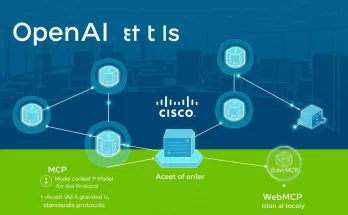In the realm of technology, continually evolving innovations often take center stage, and the latest buzz is about Google’s upcoming AI assistant, Pixel Sense. This new feature is said to revolutionize how users interact with their devices. Built specifically for the anticipated Pixel 10 smartphone, Pixel Sense aims to provide a highly personalized experience by leveraging data from the user’s everyday apps.
Pixie Promise: What to Expect from Pixel Sense
According to reports from tech site Android Authority, Google’s engineers are integrating Pixel Sense with various applications, including:
- Calendar
- Chrome
- Contacts
- Docs
- Photos
This integration allows Pixel Sense to tailor responses based on user activity, enabling a contextually aware assistant that could potentially elevate the user experience significantly. Rather than the typical impersonal interactions seen with conventional AI assistants, Pixel Sense is designed to engage users in a more meaningful way.
Personalized Interactions
One of the key highlights of the Pixel Sense assistant is its ability to process various media types including:
- Text
- Images
- AI-Generated Content
- Screenshots
This feature not only improves the ease of use but also enhances task completion speeds while maintaining strong privacy controls, as the processing will happen directly on the device itself. This is a significant leap forward in an age where data privacy concerns are paramount.
Enhancing Everyday Tasks
The landscape of artificial intelligence is rapidly changing, and Google is keenly aware of the need for AI that can handle everyday tasks more efficiently. The impending launch of Pixel Sense comes in an era where tech giants are experimenting with making AI assistants more conversational, capable of both simple and complex tasks.
For instance, Google is not alone in this race. Last week, Amazon introduced Alexa Plus, a refined version of its existing service. Despite the competition, experts like Ramon Llamas from IDC highlight the fact that advancements in AI largely focus on making interactions quicker and more comfortable for users. He mentioned, “Pixel Sense would elevate this in a way where you don’t need to get a new phone — you need a phone that gets you.”
Leveraging Existing Ecosystem
By tapping into its robust ecosystem of apps and services, Google is poised to provide a smart assistant that functions similarly to a personal concierge. According to Llamas, the assistant will track user activity, curate information, and deliver it with relevant options for a seamless experience. This positions Pixel Sense uniquely in the crowded marketplace of digital assistants.
What’s Next for Google AI?
Pixel Sense isn’t an isolated innovation; it’s part of a broader strategy where tech companies are pushing boundaries. Google has consistently worked on enhancing its AI capabilities, with tools like the unreleased lock screen feature, At a Glance, and the now-evolving assistant once referred to as Pixie.
Recent AI Tools and Features
Aside from Pixel Sense, Google’s commitment to AI integration is evident in the recent updates to various products:
- Pixel Studio App: Users can now generate AI-enhanced images.
- Gemini Live: Live video and screen-sharing features are being incorporated.
- AI Scam Detection: Tools that help filter out scam robocalls have also been introduced.
The Future is Personalized
The convergence of AI with everyday tasks paves the way for more personalized interactions. As experts suggest, the future will see AI assistants becoming more contextual, minimizing user effort in routine tasks such as:
- Finding locations
- Playing music
- Setting timers
Recognizing these needs is crucial for both users and developers as it spells out the trajectory of AI advancements.
Conclusion
As we anticipate the launch of the Pixel 10 smartphone and its innovative assistant, Pixel Sense, it’s evident that Google is setting the stage for a new era of smart technology. By committing to a more personalized user experience rooted in existing tools and services, Google stands to redefine how we perceive digital interactions. With the tablet and smartphone markets pushing for not just functionality, but connection and ease of use, Pixel Sense may become a cornerstone of daily life.
With rapid advancements such as these, the tech world is headed toward a future that promises not just smarter devices but smarter ways to engage them. The revolution in personal assistants is just beginning!


